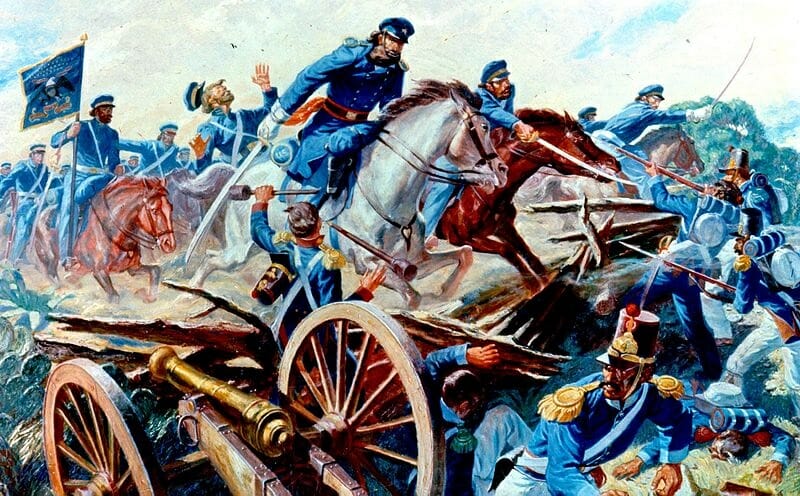by DANNY SJURSEN

The Constitution was, and is, emphatic on one matter, at least: only Congress possesses the power to declare war. In the 1840s, an era of legislative preeminence, even the high-risk Tyler blanched, aware that the agreement exceeded his authority. He quickly abrogated it, but the damage was done. Texas was at a point of no return, the U.S. government appeared treacherous, and Mexico subsequently amassed troops along the border. By election season, annexation seemed more a matter of when and how, not if.
Still, the establishment leadership in both parties stalled and
battled the current. Tyler had clearly squandered any remaining chance
for the Whig nomination, and Henry Clay stepped up, once again, to run
on the party’s ticket. He was the first to weigh in. In a letter
published in D.C. papers, which engendered regrettable political
backlash, Clay outlined his many reasons for opposing Texas’s accession
and warned readers that “annexation and war with Mexico are identical.”
The Democratic frontrunner essentially agreed. Former President Martin
Van Buren seemed to be the anointed candidate for 1844, and he also
opposed annexation. For Washington to unilaterally absorb Texas would,
he claimed, alienate every other country in the world, and “do us more
real lasting injury as a nation … [since] we have a character among the
nations of the earth to maintain.”The
Constitution was, and is, emphatic on one matter, at least: only
Congress possesses the power to declare war. In the 1840s, an era of
legislative preeminence….
[Click to Tweet]
Clay and Van Buren alike would prove correct. The only problem: rational calculus rarely prevails in the emotive realm of American politics. Both men underestimated the substantial popularity of Texas annexation among the populace. That Van Buren’s stance torpedoed his nomination became abundantly clear when the Democratic Party’s founder, Andrew “Old Hickory” Jackson, his health failing at an advanced age, turned on his one-time successor, and declared, “Obtain [Texas] the United States must, peaceably if we can, but forcibly if we must.” Jackson’s words carried enormous weight west of the Appalachian Mountains and south of the Mason-Dixon Line. Van Buren was cooked, but many wondered who would replace him. Jackson had just the man in mind: his own protégé, who, though obscure, bore the nickname “Young Hickory.” His name was James K. Polk.
Polk and the election of 1844
It was an outsiders’ election year, a cyclical phenomenon throughout U.S. history. The experience, contrary to common assumption, wasn’t unique to 2016. There are, however, distinct similarities between the ascensions of Polk and Donald Trump. Both were long-shot candidates who had initially been dismissed. Each ran against both Washington and his own party. Both defeated highly qualified — in traditional terms — candidates who had previously sought the presidency. The nominations of Trump and Polk before him were widely predicted to portend the end of their respective political parties. The main, and profound, difference was that Polk was a true ideological believer. It’s unclear which sort — idealist or opportunist — is more dangerous.
The Future of Freedom Foundation for more
